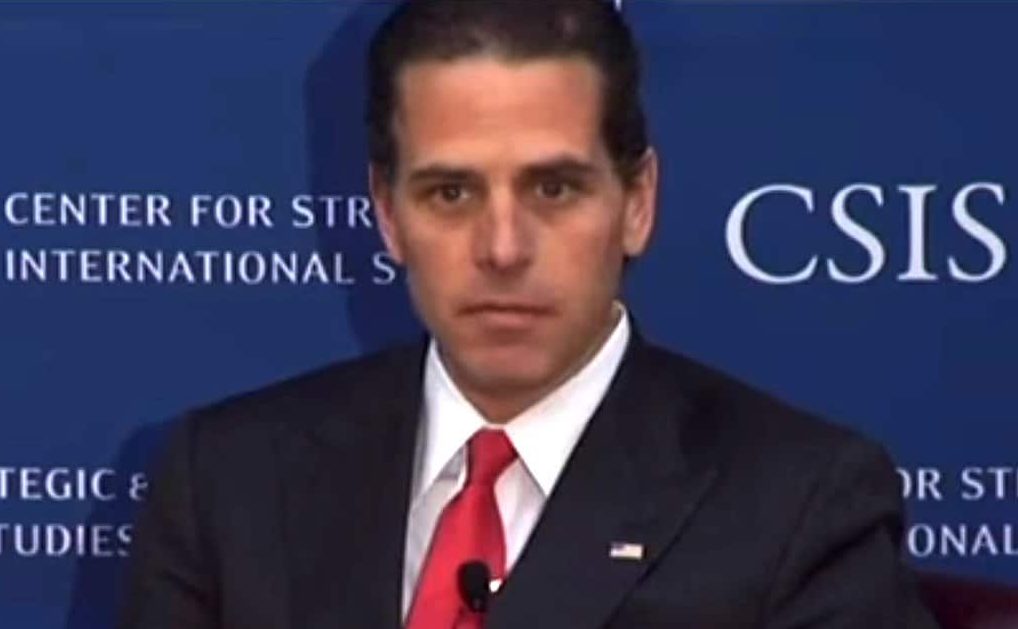
Last week, the New York Times reported it had “authenticated” materials from a laptop that reportedly belonged to President Joe Biden’s son Hunter Biden and which became the topic of controversy in the days before the November 2020 election.
After the New York Post initially reported on the laptop in October 2020, opponents of Biden said the laptop’s contents implicated Hunter, and possibly his father, in questionable business activities in Ukraine and China. 51 former U.S. intelligence officials subsequently signed a letter claiming the laptop was part of a “Russian information operation” and could be Russian disinformation.
On Wednesday, the New York Times reported it had obtained emails from the laptop between the younger Biden and business associates discussing a Ukrainian gas company known as Burisma Holdings and other foreign business activity. The New York Times said it further “authenticated” those emails “with people familiar with them and with the investigation.” Federal investigators reportedly reviewed those emails as part of an investigation into possible criminal violations of tax laws, and foreign lobbying and money laundering rules.
Within days of the New York Post’s first articles on the laptop, a group of 51 former intelligence community members said in a letter that the laptop allegations bear “all the classic earmarks of a Russian information operation.” The 51 former intelligence community members included several prominent officials, including James Clapper, Leon Panetta and John Brennan. All three served as CIA directors under President Barack Obama, and Panetta also served as Secretary of Defense during the Obama era.
“Each of us believes deeply that American citizens should determine the outcome of elections, not foreign governments,” the 2020 letter from the former intelligence community officials states.
“We want to emphasize that we do not know if the emails, provided to the New York Post by President Trump’s personal attorney Rudy Giuliani, are genuine or not and that we do not have evidence of Russian involvement — just that our experience makes us deeply suspicious that the Russian government played a significant role in this case,” the letter continues. “If we are right, this is Russia trying to influence how Americans vote in this election, and we believe strongly that Americans need to be aware of this.”
Following the New York Times’ “authentication” of emails on the laptop last week, Sen. Ron Johnson (R-WI) discussed the laptop during an interview on WABC 770 AM’s “The Cats Roundtable” with host John Catsimatidis, the New York Post reported. During that interview, Johnson criticized the letter by the intelligence community veterans.
Johnson, who serves on the Senate Foreign Relations and Homeland Security committees said, “It was obvious very early on that the Hunter Biden laptop was genuine. They never should have tainted the process with that letter, but they did. Are they going to apologize for it? I’m not holding my breath.”
On Friday, the New York Post’s editorial board wrote an op-ed in which they alleged the 51 former intelligence officials “really were just desperate to get Joe Biden elected president.”
The New York Post further criticized White House Press Secretary Jen Psaki, who tweeted in October 2020, “Hunter Biden story is Russian disinfo, dozens of former intel officials say,” despite the former intelligence officials saying they “do not have evidence of Russian involvement.”
The New York Post reached out to the 51 signatories on the 2020 letter, asking them to comment on the New York Times’ recent reporting.
“I stand by the statement made AT THE TIME, and would call attention to its 5th paragraph,” Clapper replied. “I think sounding such a cautionary note AT THE TIME was appropriate.”
Panetta declined to comment. Most of the letters other signatories didn’t respond altogether.